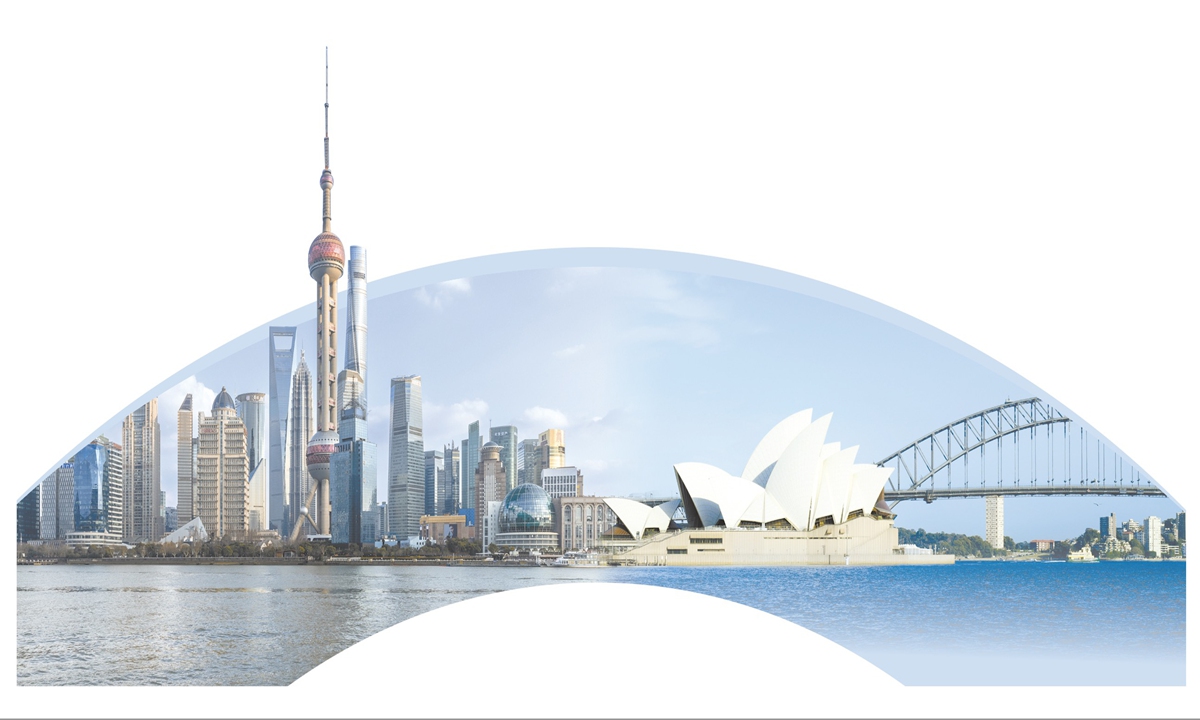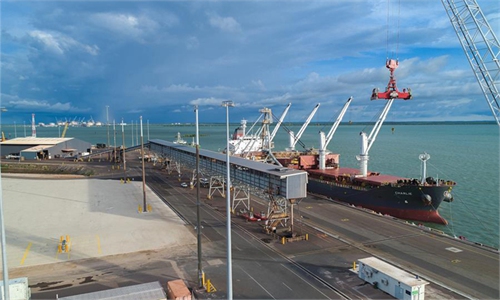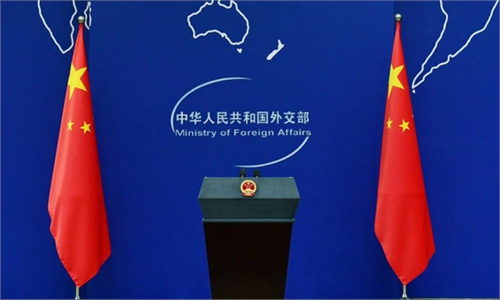
A view of Shanghai (left) and Sydney Photos: VCG
Editor's Note:
"For Australia to be safe, secure and prosperous, that requires having good relations with our biggest and best trading partner - China," Robert Barwick (Barwick), research director of the Australian Citizens Party and Senate candidate for Victoria, told Global Times (GT) reporter Li Aixin in an exclusive interview. In Prime Minister Anthony Albanese's new term in office, Barwick expects to see a continuation of the Albanese administration's policy of stabilizing the relationship with China. He also shared his views on the Darwin Port which has recently come under renewed pressure of forced takeover by the Australian government.
GT: With Albanese having entered his second term, how do you foresee the future dynamic of China-Australia relations?
Barwick: I do expect to see a continuation of the Albanese administration's policy of stabilizing the relationship with China. The relationship is in much better condition than it was in 2022, when he took over from the Scott Morrison government. I would expect that positive trajectory to continue.
GT: Reports show that there will be some high-level exchanges between China and Australia later this year. What do you expect from them?
Barwick: I expect them to focus on the basis of Australia's relationship with China - the trade relationship. Australia and China have an excellent trade partnership. We are very complementary economies. We have provided billions of tons of iron ore to China. China has turned those billions of tons of iron ore into high-speed rail, enormous bridges and dams, and all the infrastructure that has made China a great economy.
It has also helped power Chinese manufacturing, which we benefit from buying the manufactured goods in Australia. China is still the holy grail of export markets. Everyone wants a place in the Chinese market.
I hope the high-level exchanges will encourage more people-to-people exchanges. That's where you really strengthen a relationship. China has announced 30-day visa-free travel to China for dozens of countries, including Australia, and it would be wonderful if more Australians saw China as a good holiday destination, so they can actually see in person the country that's talked about so much in the news.
By the way, the Australian tourism industry is keen to get Chinese tourism back to where it was before 2020. Back then, Chinese tourism was the No.1 source of tourism in Australia and the tourism industry in Australia would definitely love to get it back to that level.
GT: Following the thaw in China-Australia relations, which areas within Australia do you believe have undergone the most visible changes at the public level?
Barwick: A few weeks ago, I visited Tasmania - Tasmania is our Hainan - and attended an event for the reopening of the Tasmanian branch of the Australia China Business Council. There were a lot of Tasmanian businesses that export to China, including lobster businesses. That was the last area of trade to be restored. They were expressing, very sincerely, how genuinely excited they were that the market was back.
Why were they excited? A lobster businessman there explained that his top 10 markets are all different Chinese cities. His 11th market is Australia, and his 12th is Singapore. So, when your top 10 markets are all Chinese cities, you really miss that trade when it's gone.
GT: Australia's Trade Minister Don Farrell recently indicated that Australia's export trade with China is worth much more than trade with the US. What message do you think this statement conveys?
Barwick: What Farrell expressed was, in one word, reality. We have a trade surplus with China that's around $100 billion, so we profit immensely from our trade with China. We have a trade deficit with the US of about $17.9 billion.
That should make the US government happy - but it didn't stop it from whacking a 10 percent tariff on us. It insulted many Australians because we have been nothing but a loyal ally - I say "lap dog" - to the US. We have done its bidding every time it's asked. We've accepted this trade deficit where America profits from us. We don't profit from trade with America.
It actually showed that China is our more stable partner. But politically, our government and our opposition are wedded to this military-strategic alliance with the US. And the political pressure to submit to the US on all matters is enormous, so we are continuing to do it.
The Australian government is continuing the AUKUS agreement with the US and the associated military buildup, including the increasing presence of US military forces in Australia. That buildup has expanded over the past three years, to the point where I would say Australia is under a form of military occupation by the US.
To take another example, 10 years ago, the Darwin Port was privatized by the Northern Territory government with the approval of the federal government at the time. It met all the security requirements, and it was concluded by all the security experts that there was no security risk. The company that bought the lease is China's Landbridge Group. At the time, the Darwin Port was operating at a loss. Landbridge has invested in it for 10 years and has improved it immensely. The port is now making a profit.
During the election, Albanese and his opponent both said that they would take back the lease from Landbridge. Now, the latest news is that an American investment fund named Cerberus Capital Management has expressed interest in purchasing the lease for the Darwin Port. This fund was started by Steve Feinberg who is currently the US deputy secretary of defense. If Australia takes back Darwin Port due to US pressure, it should be completely unacceptable to a country with any sense of sovereignty and self-respect.
GT: You once said that Australia has been caught up in the US and UK's paranoia about China. Yet China poses no threat to Australia in any way. Is this mentality driven more by domestic political factors, media narratives or the architecture of international power relations?
Barwick: The answer is all three, but mostly media narratives and the architecture of international power relations. Because of the US' tariff decision, there has been a sudden shift against the US in Australian public opinion. It actually showed that China was our more reliable partner. So public opinion can change. But the media is out there every day trying to make sure it doesn't change. It's about manipulating the public to make sure we side with the US, as it pursues its goal of containing China.
GT: With that backdrop, in what ways do you think Australian society could develop a more rational, positive perception of China?
Barwick: When we have elections in Australia, there's a saying that people vote with their wallet. It always comes down to economics. Even though we talk about the strategic relationship, the big vulnerability to our relationship with the US is the economic relationship - because we don't have it with the US. We have it with China.
I'm not arguing from China's position, I'm arguing from a sovereign Australian position - who wants our country to be safe, secure and prosperous, and that requires having good relations with our biggest and best trading partner - China.
I know that China has made offers to assist Australia, in areas like manufacturing electric cars in Australia. The problem is we have to start treating China better than we are, because why would Chinese companies invest in Australia after what has happened to the Darwin Port?
Australia has been talking about high-speed rail since the 1970s and we haven't built one centimeter of it. Since 2008, China has built nearly 50,000 kilometers of it. We need high-speed rail here. There's enormous potential for high-speed routes on the east coast of Australia. If you do something like this properly, you need to consult with the people who are good at it. Who's the best at it? China.


